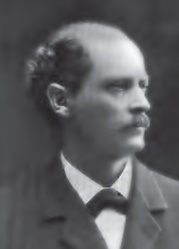 William R. DavisWilliam Rude Davis (February 26, 1850 – March 17, 1915) was the 25th mayor of Oakland and a lawyer. He served one term as mayor from 1887 to 1888. He was a Republican.
William R. DavisWilliam Rude Davis (February 26, 1850 – March 17, 1915) was the 25th mayor of Oakland and a lawyer. He served one term as mayor from 1887 to 1888. He was a Republican.
Family and Personal
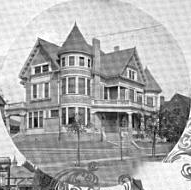 Davis home 2William Davis was born February 26, 1850 in Iowa and moved with his family to California in 1854 when he was four years old. The family settled in Santa Rosa in 1858 after arriving in Grizzly Flat in Amador County. He attended the Brayton School in Oakland and graduated from the University of California in 1874 (or 1875) and was the salutatorian of his class.
Davis home 2William Davis was born February 26, 1850 in Iowa and moved with his family to California in 1854 when he was four years old. The family settled in Santa Rosa in 1858 after arriving in Grizzly Flat in Amador County. He attended the Brayton School in Oakland and graduated from the University of California in 1874 (or 1875) and was the salutatorian of his class.
Davis married Otteline Towne (Davis) in 1879. They had three sons, George Clarke Davis (January 3, 1880 – October 14, 1952), William Ralph Davis (September 17, 1890 – April 2, 1892) who died at 18 months old, and William Rude Davis, Jr. (August 2, 1895 – July 24, 1971) .They lived at 514 18th Street 5 and later 404 - 29th Street.7 In 1910, William, Otteline, William, Jr. and Otteline's mother Charlotte Towne were living at 474 - 29th Street.
Davis was a member of Oakland Lodge No. 188, F. & A. M. (Free and Accepted Masons) of Alameda Chapter, No. 36, R. A. M. (Royal Arch Masons) and of Oakland Commandery, No. 11, K T. (Knights Templar) 4
Professional
He briefly worked as at the Santa Rosa Times as a correspondent and then as an editor. His next position was as a teacher at Washington College in Irvington (now part of Fremont) in Alameda County.
In 1875 Davis switched to law and was admitted to the bar of the Supreme Court of California in 1878, district and Circuit Courts of the US in 1880, Supreme Court of Nevada in 1883 and Supreme Court of the US in 1886. He was a member of the firm Moore, Vrooman & Davis until 1886. He also practiced with W. I. Hill as Davis & Hill but primarily was in private practice after 1883. He practiced law in California, Oregon and Nevada.
Davis was also known for his writing. He published ”Nature and Human Nature in Oakland” in the Oakland Tribune: Illustrated Special Edition of January 1888, as well as other pieces for the Trib.8
Davis won the election in 1887 by the largest majority for the Republicans in 15 years. Some of his Mayoral ideas were "municipal improvement" like improving parks, the Lake Merritt boulevard, improving streets and sidewalks, dividing the city into three districts for prioritizing street updates, using salt water for sprinkling the streets, keeping merchants from encroaching on sidewalks, upgrading sewers, improving the water supply. He created a committee to work on a new charter. He proposed 19 things, all of which were accepted. 3 Davis declined the mayoral nomination in 1889 citing his health.
During his time in office, he also built the namesake Davis Block at 11th and Washington.
In 1896, Davis, by then ex-Mayor, petitioned the commissioners of the Oakland Police Department to allow J. F. Young to join the force, which would make him the Department's first African American policeman. 6 (anyone know if this happened?) first african american policeman maybe.pdf
There is also a Horace Carpentier connection because...of course there is. davis and carpentier.pdf Davis eventually won the waterfront case for Oakland—he was the expert on the matter. (lots to be done here by someone who understands the decades of waterfront mess)
Death and Burial
William Rude Davis died March 17, 1915 of heart trouble, and is buried at Mountain View Cemetery, along with Otteline, William Ralph, and George and his wife Florence.
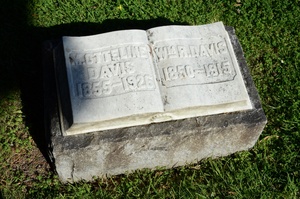 CC SA-BY Our Oakland
CC SA-BY Our Oakland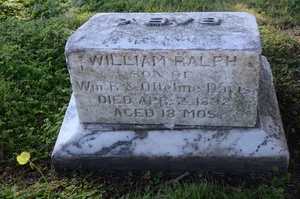 CC SA-BY Our Oakland
CC SA-BY Our Oakland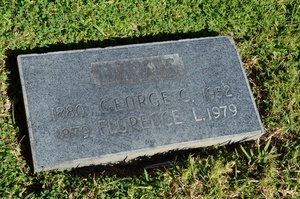 CC SA-BY Our Oakland
CC SA-BY Our Oakland
Links and References
- Alameda County: The Eden of the Pacific. Tribune Publishing Co: 1898.
- Alameda County.
- "The Bay of San Francisco," Vol. 2, Page 329-332, Lewis Publishing Co, 1892.
- "The Bay of San Francisco," Vol. 2, Page 329-332, Lewis Publishing Co, 1892.
- Husted's. 1887.
- "OAKLAND MAY HAVE A NEGRO PATROLMAN." San Francisco Chronicle: May 23, 1896.
- "FORMER MAYOR OF OAKLAND IS DEAD: William R. Davis, Prominent East Bay Attorney, Goes to His Reward." San Francisco Chronicle: March 18, 1915.
- The article is touted in the Oakland Tribune of February 24, 1888, p. 4, under the headline "Of Permanent Value." The California Historical Society library in SF has a copy of the Oakland Tribune Illustrated Special Edition of January 1888, containing the piece.



